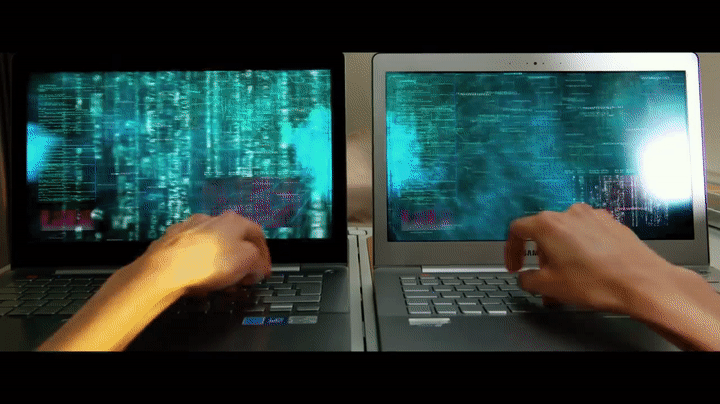Personal reflections after 7 years as an academic roaming in the civil service
Back on Substack, but not reading quite yet...
After 7 years seconded to FCDO’s Research and Evidence Directorate as a Senior Research Fellow covering conflict and governance, my time there finally came to an end in early September. I wouldn’t describe myself as thrilled with this, even now, but the day was inevitably going to come at some point. That day or a different one, it’s never easy saying goodbye.
My first day was the election day where Theresa May lost her majority. I was there through Yellowhammer, Covid, the merger between DFID and the FCDO, the ODA cuts and drop from 0.7, the move from 22 Whitehall to King Charles Street, the withdrawal from Afghanistan, Russia’s invasion of Ukraine, 5 British prime ministers, 9 (I think) secretaries of state and lots of ministers (I’m not sure I can count without doing research). I get tired just thinking about it all, but for better or for worse, living through multiple crises together created a real sense of solidarity and friendship that will stay with me forever
After 7 years as SRF, I was given a truly lovely send off by colleagues. There were tears. I wore waterproof mascara to be on the safe side and was grateful for the foresight. I received an amazing card filled with so many kind, funny, loving messages. There were more tears. I received wonderful presents from very kind people that made me blurt laugh (and cry, because of course…).
As people do, at my leaving do I shared a few thoughts about my time as SRF. I plagiarised mercilessly from wonderful colleagues who recently left at the same time, where they each did a 5+5+5 at their leaving do: 5 things they’ll miss, 5 things they won’t and 5 things they’ll do now that they’ve left. I’m just going back to my normal full-time job, so I’ve tweaked mine a little bit to ‘3 things I won’t be doing now’, and I thought I’d share these so that people who weren’t there, as well as those who might be interested, can enjoy (hopefully!) what my own 5+5+3 are.
Five things I’ll miss
1. The absolutely incredible people. FCDO colleagues are the smartest, most committed people I have ever been lucky enough to work with and to get to know. I could not be prouder of working with such amazing people, and more grateful to call so many of them friends, ones who can make my brain sizzle with ideas, who can make me cry with laughter and who will be a part of my life forever. I will miss working with them more than I can say. And I will say this again and again: whatever government is in power, they – and the British public – are incredibly lucky to have such amazing people working on their behalf, in the UK and all around the world.
2. My building pass. To paraphrase Carl von Clausewitz: ‘Everything [once was] very simple, but the simplest thing is [now] difficult. The difficulties accumulate and end by producing a friction, that is inconceivable unless one has experienced [trying to organise a meeting in FCDO as an external].’ Trying to organise a meeting, let alone stacking up meetings to make the most out of a trip to London, is much harder without my laptop, but my pass? Losing my pass means losing opportunistic meetings, impromptu coffees and being able to be part of the gang. It means former colleagues have to lose extra time to come down to reception to meet me, to escort me around the place and to bring me back. All I can say is, meh.
3. Impactful work. Like in any organisation, let alone in any large bureaucracy, not every single thing that happens in FCDO is impactful, of course. There can be quite a lot of work that appears to be activity for activity’s sake sometimes (especially when the key differences between outputs, outcomes and impact aren’t always well understood by some decisionmakers). But ultimately the work that everyone does matters in a way that’s very hard to find outside the civil service. Over the years, I’m confident in saying that I’ve had a lot of impact, not all of which (or even much of which) I can share, but the place itself makes that easy.
4. Learning. To say I’m not the same person I was 7 years ago would be an understatement, and a good part of these changes are down to constant on the job learning. FCDO is the most unbelievably fertile space for generating ideas and accessing internal and external expertise. You want to know about X? Send an email out and lots of smart people reply. Didn’t even know you wanted to know about Y? There’s a seminar on that next week, and you’ll wonder why you haven’t thought about it before! I hope I’ve given back more than I’ve taken, but I have taken a lot over the last 7 years. It is the most amazing place to be if you’re as endlessly curious (and distractable…) as I am.
5. Being in the room where things happen. One thing I don’t think I gave much thought to before my secondment was how different it is being ‘in the room’ as a trusted outsider, which I often was, versus being an insider. Being an insider means being in the room without having to be invited or being in rooms that are always closed to outsiders, no matter how trusted, or that outsiders might not even know exist at all. I’ve been incredibly privileged to be involved in so many important, exciting, frustrating and impactful discussions and events alongside civil servant friends. (But it’s worth adding a small caveat: I’ve also been occasionally frustrated to be not invited into the room when I could’ve added real value, especially when the focus of discussion was something I’d actually contributed to. See ‘Hierarchy’, below.)
Five things I won’t miss
1. Two laptops, phones, emails, diaries. What a bloody nightmare this has been. I gave up on being able to stay on top of things when COVID hit, and I’ve never fully recovered. The heady days of Inbox Zero are long gone. I do still reach for my FCDO phone like it’s a ghost limb, but the sight of a single diary that I have almost total control over is amazing. It’ll take me weeks to get caught up on everything, but at least there’s hope now that I can. It’s quite a feeling really.
2. Urgency. SCENE: Academic secondee receives email from civil servant colleague asking her to feed into something that’s urgent. She looks at diary and thinks, ‘Yeah, I can get to this in a couple of weeks’. She quickly learns that ‘urgent’ almost always means ‘now or never’, and that ‘never’ can have real-life consequences. She freaks out and learns to do things differently, most of the time. END SCENE. There is literally nothing in academia that’s really urgent, unless there’s a crisis with a student’s mental health, for example, or something similar. Nada. Niente. It’s amazing. Academics may think lots of things are urgent, and university administrators certainly do, but they almost never are in reality. I’ve spent the past 7 years gaining a real appreciation for the difference between urgent-important and urgent-not important; once seen, never unseen.
3. Not so smart people doing stupid things. While 99.9% of the people I’ve worked with over the past 7 years have been unbelievably smart, there have been a handful of not-very-smart people too. Not-smart people can do some pretty bad things, often without really even realising it. Even worse, though, is having to watch smart people doing stupid things, things they know are stupid, because they’ve been told by someone more senior to do them. There have been times over the years when I’ve spent more time than I care to remember trying to help smart people deal with this, either by being more free to call this sort of thing out, or by being good at helping figure out the best possible thing to be done in the circumstances. There’s been far less of this sort of thing in recent years, but I won’t miss seeing this side of the sausage factory.
4. Hierarchy. Not unrelated to the previous point, of course, but I really, really loathe hierarchy. I loathe it at work, at home and in society. Hierarchy is often responsible for some really stupid things happening, because no one’s able to speak up. It keeps the best voices out of the room. It kills the chance of having honest conversations about tensions and trade-offs, the sorts of thing the Chilcott checklist rightly warns us about. In the very worst cases, it can lead to catastrophic consequences. Anyone who has known me well for a long time would be amazed at how well I coped with being within a hierarchical organisation, and how often I kept my mouth shut (hey reader: stop laughing…). Being part of a team that’s responsible for delivering things requires some degree of command and control, and that’s ok. But that’s not what hierarchy is. If I had a magic wand with only one sparkly swish left, I would use it to flatten the hierarchy.
5. No external voice. My secondment wasn’t a civil service position, and technically I didn’t need to act like a civil servant in terms of political neutrality and the like. However, I never forgot that I was working with civil servants who do have to be neutral and who aren’t able to speak freely in public. I occasionally met with ministers as part of my job, and I wanted them to be comfortable with me knowing that I would be discreet along with being honest. I also signed things that meant there were some things I simply couldn’t (and shouldn’t) say. I decided early on to be more measured in what I said publicly - online, in events and in the classroom. However, I’m an expert on corruption, and I have to say it wasn’t always easy to do this during what was arguably the most corrupt period in British political history since people wore powdered wigs. So now - woo hoo! I’m back to saying what I’d like! Except…frankly…I’m finding that my appetite to have lots of public opinions is lower now than it used to be. There’s a lot of noise out there, activity for activity’s sake one could say, and I don’t feel much like adding to that. But at least if I feel moved to say something now I can.
Three things I won’t be doing now
1. Writing a book about all of this. So many people have been in touch to ask when I’m going to write a book about my time as SRF. When I first started, I thought about this as a possibility, but I realised on my very first day that the only way to do the job well was to be trusted. And the only way to be trusted? Be trustworthy. That’s not going to change now, and I have no plans on betraying the trust that I’ve been given by so many now that I’m gone. I know that I do have some useful reflections about things that I’ve learned over the years that would be helpful to share, but I’ll think about this more in slow time. Anyway, writing this sort of book just isn’t that interesting to me, and I have a lot of other more interesting (and urgent/important) writing to get on with right now.
2. Forgetting I’m not there anymore. In my experience, people who do write these sorts of books (or papers, articles, blogs etc) tend to forget that the organisation isn’t frozen in time when they leave. So much of what happens inside is invisible outside, and even the most experienced, well-connected and well-meaning former colleagues end up saying quite a lot of pretty pointless things because they don’t really understand the way things work after they left. Worst, worst case, they get things wrong, and that makes things worse for the people still there if the person speaking has the ear of decisionmakers. I’m not going to imagine I still have a seat in the room, because I don’t, and I’ll consider what I say and do carefully to avoid potential unintended consequences.
3. Overfilling my diary. I may have been told by a few people over the years that they’ve never not known me to be overstretched. I’m not retiring or anything, and I have a large research programme to continue to lead, and that’s more than enough, especially as it means I’ll finally be able to give our fantastic researchers more of my time (which they deserve). You’ll know that I’m successful in protecting my space if, in a few weeks, you see my ‘What I’m Reading’ Substack going again. You’ll also know if I’m failing if it then disappears. Please feel free to organise an intervention. Bring wine and nibbles.
To any of my FCDO colleagues and friends who might be reading this – thank you all for the most amazing, life changing, brain buzzing and rewarding 7 years. It has been the privilege of my life to work alongside you.
I ask for only one thing in return: if someone could please take up the sarcastic gifs baton, I would be most grateful. The work is far too serious and, sometimes, pretty awful too not to give each other a good laugh from time to time…



















Fun reading. Enjoyed the gifs, too. Happy return to unrestrained writing!
Quite fascinating - I loved the illustrations and wasn't aware of the Min Defence Chilcott Report for which I'm grateful